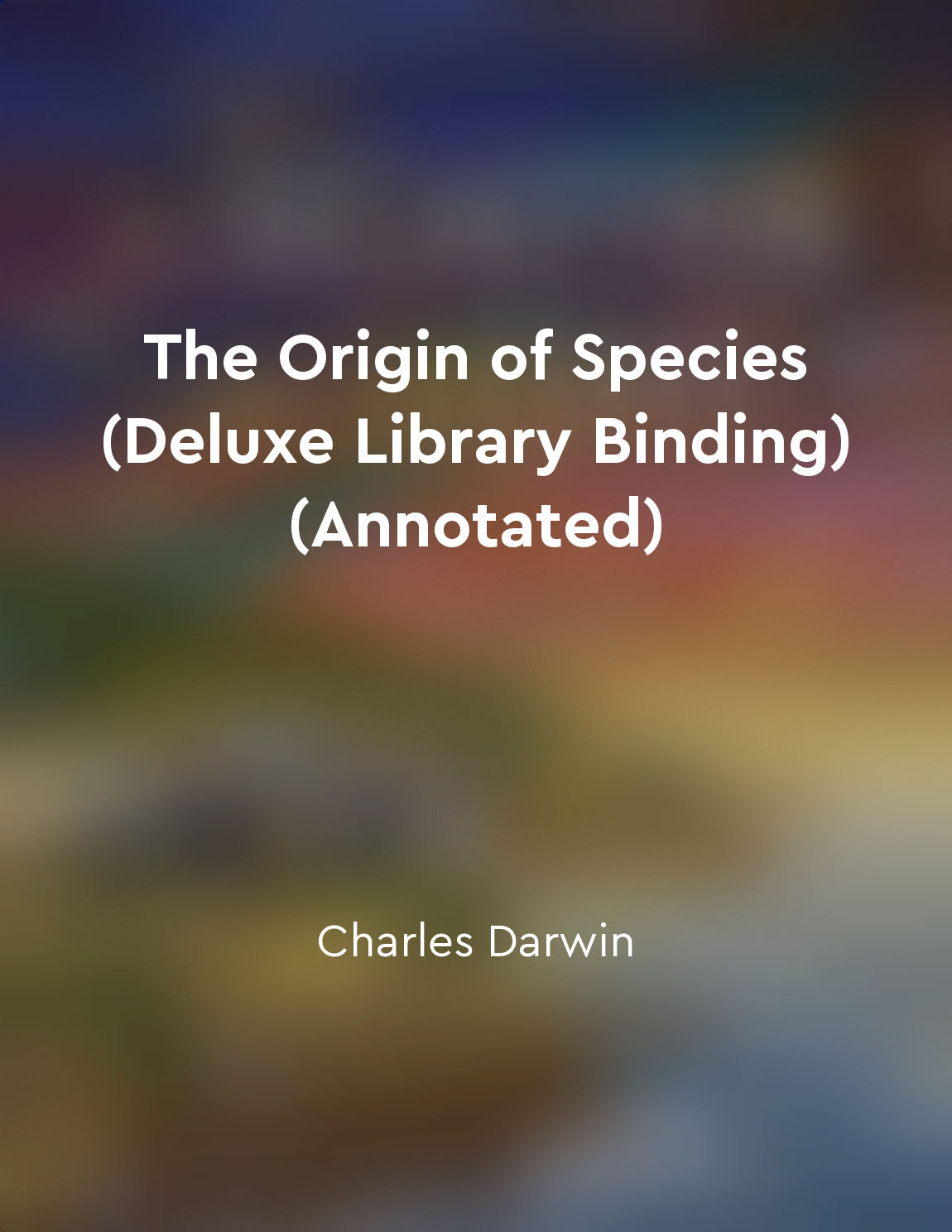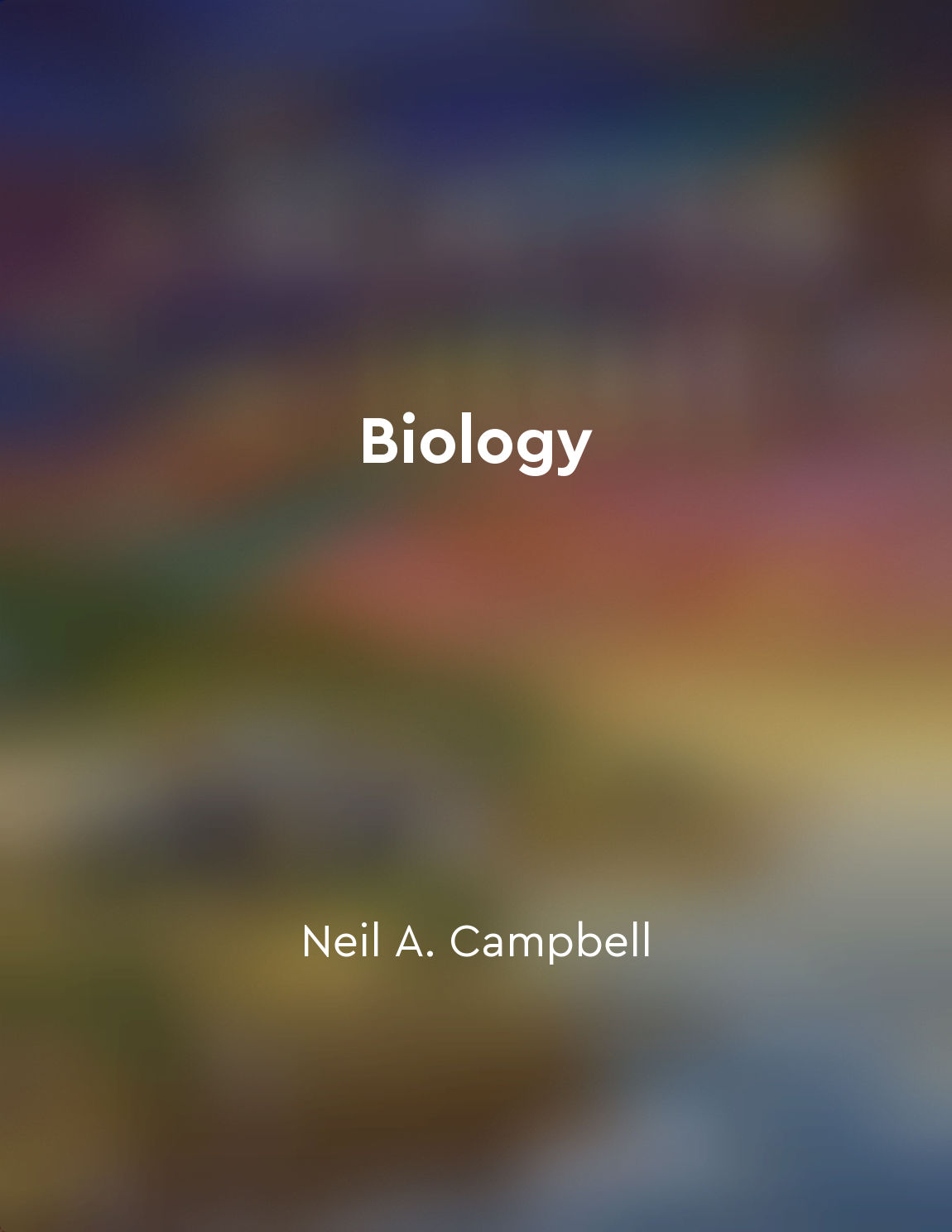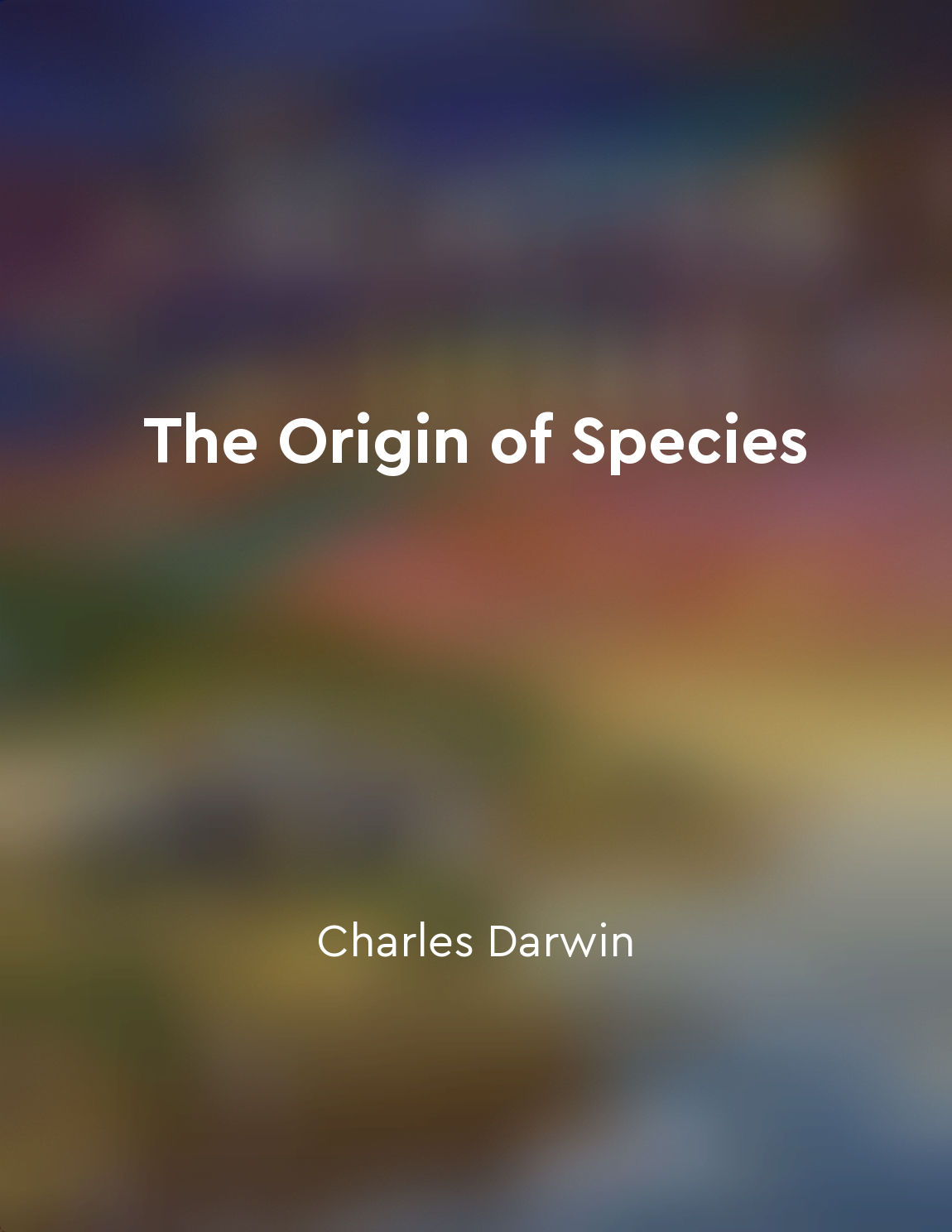Competition among species drives evolution from "summary" of The Origin of Species by Charles Darwin
The struggle for existence among all organic beings throughout the world, which we see everywhere in our daily lives, is the driving force behind the process of evolution. This competition takes many forms, from the battle for food and shelter to the fight for a mate. Every species is constantly engaged in this fierce contest, with only the strongest, fittest individuals able to survive and reproduce. In this intense struggle for survival, individuals with advantageous variations are more likely to thrive and pass on these favorable traits to their offspring. Over time, these advantageous variations accumulate in the population, leading to the gradual change and adaptation of species to their environment. This process, known as natural selection, is the mechanism through which evolution occurs. The competition among species for resources is a crucial aspect of this struggle for existence. Different species often occupy similar ecological niches and compete for the same limited resources. This competition drives species to evolve new adaptations in order to outcompete their rivals and secure their place in the ecosystem. As species evolve in response to competition and changing environmental conditions, new niches may be created that allow for the diversification and specialization of organisms. This diversification leads to the development of new species over time, as populations become isolated and undergo independent evolutionary trajectories.- Competition among species is a fundamental driver of evolution, shaping the diversity of life on Earth. It is through this ongoing struggle for existence that species are able to adapt, evolve, and thrive in a constantly changing world. The relentless competition among organisms ensures that only the most well-adapted individuals are able to survive and reproduce, perpetuating the process of evolution.
Similar Posts
Gradualism and punctuated equilibrium are modes of evolutionary change
Gradualism and punctuated equilibrium represent two contrasting modes of evolutionary change. Gradualism posits that evolution ...
Physics and chemistry also play crucial roles
The intricate processes that sustain life on Earth are not solely the domain of biology. Physics and chemistry also play crucia...
DNA is the molecule that carries genetic information
The gene is the fundamental unit of heredity, a scrap of information passed down through generations. It carries the codes for ...
Our behavior is altering the course of history
In our modern era, the actions we take as individuals and as a society have profound implications for the future of our planet....

DNA technology has revolutionized biology research
DNA technology has transformed the field of biology research in recent years. This revolutionary technology has allowed scienti...
Evolution is driven by diversity
Evolution is a complex process that involves the gradual change and adaptation of living organisms over time. One of the key fa...

Adaptations increase fitness
Adaptations are beneficial traits that increase an organism's chances of survival and reproduction in a particular environment....

Diversity of life on Earth
The incredible variety of living organisms that inhabit our planet is a testament to the diversity of life on Earth. From the t...
Life challenges our assumptions and beliefs
As we navigate through the unpredictable terrain of life, we often find ourselves confronted with situations that force us to q...
Genetic enhancements raise ethical concerns
The idea of genetic enhancements is often met with a mix of fascination and fear. The ability to manipulate our genetic code to...


